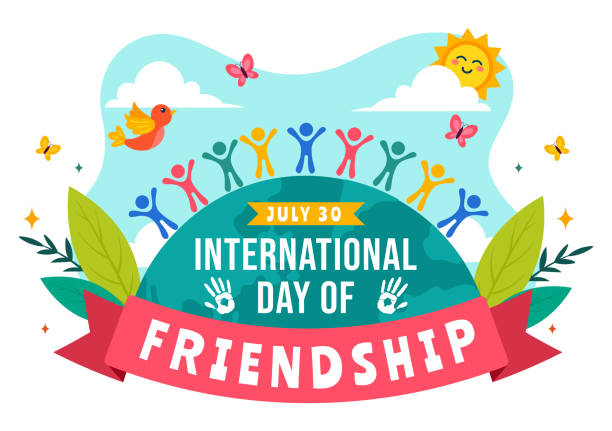JULY| FRIENDSHIP GROWS IN SMALL MOMENTS

Why it Matters?Friendship isn’t just social.
It supports mental health, strengthens school engagement, and helps children feel safe being themselves. And when we lift it up as a value, kids notice.
 
|
|
Dear Families,
This week, during summer school arrival, I noticed two students walking in together, side by side, their backpacks bouncing as they talked. One had been in the program last year and the other was new. I heard one say, “I’ll walk you to your class.” It was a simple sentence, but you could see how it eased the nerves for the new student. Moments like this are easy to miss, but they mean everything to a child trying to find their place. And that’s the heart of Friendship Day, teaching our children that even the smallest gestures can make someone feel seen and supported.
|
3 WAYS OUR SCHOOLS SUPPORT
|
-
We set the tone early with classroom charters: At the start of the school year, every classroom creates a charter—part of the Yale RULER approach—that names how students want to feel at school and what they’ll do to help everyone feel that way. It’s not just a list of rules, it’s a shared promise they help write together.
-
Adults model what healthy friendship looks like: Our staff knows children learn more from what we do than what we say. So we model kind language, respectful listening, and how to work through conflict. Using the RULER Blueprint, we help children pause, reflect, and respond calmly when problems arise.
-
We give students chances to connect through group work: teachers intentionally mix students into different groups throughout the year. They’re learning the 4 Cs—Collaboration, Communication, Critical Thinking, and Creativity—and just as important, they’re learning about one another. Group work gives every child a chance to be known, contribute, and grow friendships through shared success.
|
| 3 WAYS OUR FAMILIES CAN SUPPORT AT HOME |
-
Talk about what makes a good friend: At dinner or bedtime, ask: “What does a good friend do?” or “Who was kind to you today?” These small questions build big ideas—trust, kindness, and empathy.
-
Practice repair after conflict: Conflict happens in every friendship. When your child has a hard moment with a friend, help them slow down, think through what happened, and plan their next step. Avoid fixing it for them—guide them to take responsibility and make it right.
-
Model it, just like we do: When you greet a neighbor, say thank you to a cashier, or check in on a friend, your child is learning how to be a good friend too. Let them see you make time for connection and kindness, even on the busiest days.
|
|
|
|
|
|
KEY FACTS ABOUT INTERNATIONAL FRIENDSHIP DAY
International Friendship Day, also known as World Friendship Day, is a day dedicated to celebrating the value of friendship.
-
Date: It is officially observed on July 30th annually, as proclaimed by the United Nations General Assembly in 2011.
-
Purpose: The day emphasizes the idea that friendship can inspire peace efforts and build bridges between communities, fostering a community of peace and mutual understanding.
-
Celebrations: People around the world celebrate by connecting with friends, exchanging gifts or messages, organizing gatherings, and engaging in activities that promote friendship and community.
|
 
|
|
|
|
|
THIS MONTH'S FAMILY CONNECTION CHALLENGE
In honor of Friendship Day on July 30, the friendly schools would love to celebrate your child's small acts of kindness. If you see your child doing something thoughtful—welcoming a new friend, helping a sibling, writing a note—snap a quick photo and send it to me via ParentSquare. With your permission, we’ll share a few moments on our Friendly Schools Instagram and webpage.
|
|
|
|
|
|
| CONNECTING! PARTNERING! SUPPORTING! |
|
| FOR MORE INFORMATION CONTACT |
|
|
CLEAR STREAM AVENUE
JOHN SINGLETON, Principal
YANNIE CHON, Assistant Principal
(516) 434-3600, x1004
|
FOREST ROAD
KELLY NICHOLSON, Principal
ASHLEY LEMMO Assistant Principal
(516) 434-3600, x2002
|
SHAW AVENUE
ERIN MALONE, Principal
TBD, Assistant Principal
(516) 434-3600, x310
|
|
|
|
|
|
Need to translate this message?

|
¿Necesitas traducir? Toca los tres guiones en la esquina superior izquierda. Luego toque "cuenta". Luego toque "preferencias". Luego toque "idioma" y seleccione su idioma. Ahora puedes leer todos los mensajes en tu idioma. |
ترجمہ کرنے کی ضرورت ہے؟ اوپر بائیں کونے میں تین ڈیشز کو تھپتھپائیں۔ پھر "اکاؤنٹ" پر ٹیپ کریں۔ پھر "ترجیحات" پر ٹیپ کریں۔ پھر "زبان"
پر ٹیپ کریں اور اپنی زبان منتخب کریں۔ اب آپ اپنی زبان میں تمام پیغامات پڑھ سکتے ہیں
|
|
|
|
|
|
|
|